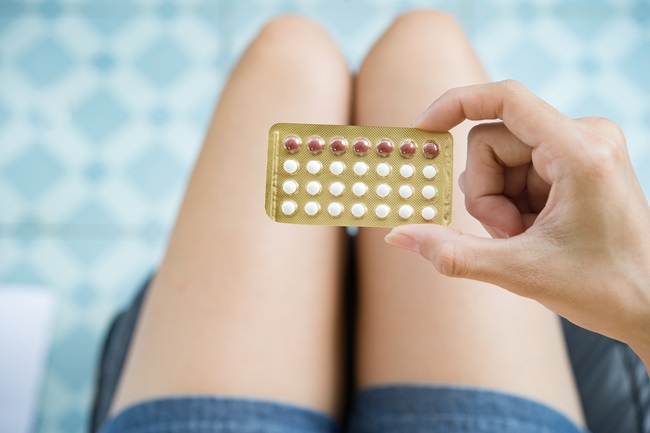
Does birth control affect fertility? It’s one of the first questions many women ask when they decide to come off contraception and try to conceive. Fortunately, for most women, fertility returns quickly after stopping birth control. However, some may notice a slight delay. If you’re eager to speed up the process naturally, you’re in the right place. Let’s dive into effective, natural strategies to boost fertility after stopping birth control — and set the stage for a healthy pregnancy.
Understanding the Impact of Birth Control on Fertility
Before jumping into solutions, it’s essential to understand how birth control interacts with your body.
Does birth control affect fertility? Scientifically speaking, most forms of hormonal birth control (like pills, patches, and IUDs) temporarily suppress ovulation. Once you stop using them, your body typically resumes normal ovulation within a few weeks to a few months. In rare cases, it might take up to a year for cycles to regulate, depending on individual factors like age, overall health, and the type of birth control used.
How Long Does It Take for Fertility to Return?
Most women regain fertility quickly after stopping birth control. Here’s what you can expect:
-
Birth Control Pills: Ovulation can resume within 1–3 months.
-
IUDs (Hormonal and Copper): Fertility returns almost immediately after removal.
-
Depo-Provera Shots: This method may delay fertility by 6–12 months.
Still wondering, does birth control affect fertility long-term? Research shows that it typically doesn’t have lasting negative effects. However, your body may need a little extra support to regain balance.
Natural Ways to Boost Fertility After Stopping Birth Control
1. Support Hormonal Balance with Nutrition
Your hormones need proper nutrients to function optimally. After stopping birth control, your body might be low in vital vitamins and minerals.
Focus on a diet rich in:
-
Leafy greens (spinach, kale) for folate
-
Healthy fats (avocado, nuts) to support hormone production
-
Lean proteins (chicken, fish) for cell repair
-
Whole grains (quinoa, oats) for blood sugar balance
Incorporating fertility-friendly foods not only enhances hormonal balance but also prepares your body for a healthy pregnancy.
2. Start Tracking Your Menstrual Cycle
Getting familiar with your natural cycle is crucial. Use fertility apps or a simple calendar to track:
-
The length of your cycle
-
Ovulation symptoms (like cervical mucus changes)
-
Period regularity
If you’re asking, does birth control affect fertility tracking? Only temporarily. Once your hormones stabilize, tracking can become your most powerful tool for conception.
3. Maintain a Healthy Weight
Being underweight or overweight can disrupt ovulation. Research shows that a Body Mass Index (BMI) between 18.5 and 24.9 is optimal for fertility. Focus on achieving and maintaining a healthy weight through:
-
Balanced nutrition
-
Regular exercise
-
Stress management
Small changes like a daily 30-minute walk or adding more vegetables to your meals can make a significant difference.
4. Reduce Stress
Chronic stress can throw your reproductive hormones off balance. Practices like:
-
Yoga
-
Meditation
-
Breathing exercises
-
Journaling
can help you stay centered. Wondering does birth control affect fertility when stress is involved? Indirectly, yes. Stress can delay the return of normal cycles after stopping birth control, making stress reduction even more important.
5. Focus on Detoxification
While your liver naturally detoxifies hormones, you can support this process by:
-
Drinking plenty of water
-
Eating cruciferous vegetables like broccoli and cauliflower
-
Limiting processed foods
-
Reducing alcohol and caffeine intake
A healthy liver means smoother hormonal transitions post-birth control.
6. Take Fertility-Supporting Supplements
After years on birth control, your body may benefit from a few key supplements, including:
-
Prenatal vitamins with folic acid
-
Omega-3 fatty acids
-
Vitamin D
-
Probiotics
These nutrients help replenish depleted stores and encourage a fertile environment in your body.
Pro Tip: Always consult a healthcare provider before starting any new supplements.
Benefits of Natural Fertility Boosting
Choosing natural methods to support your fertility offers several benefits:
-
Better hormonal balance without medical interventions
-
Improved overall health for conception and pregnancy
-
Increased awareness of your body’s rhythms
And importantly, you’ll be addressing the root causes, rather than just the symptoms.
Post-Birth Control Care: What to Expect
Coming off birth control may cause temporary changes like:
-
Irregular periods
-
Mild hormonal acne
-
Mood swings
These symptoms typically resolve within a few months as your body rebalances itself. Be patient, nourish yourself, and trust the process.
If your cycle hasn’t returned after 6 months (or 12 months if you had a Depo shot), consult a fertility specialist.
Remember: Does birth control affect fertility permanently? In the vast majority of cases, it doesn’t — but giving your body the right support can make the transition faster and smoother.
When to Seek Help
While natural methods are incredibly effective for many, it’s important to know when to seek medical advice. Contact your doctor if:
-
You have not had a period within 3–6 months after stopping birth control
-
Your cycles are extremely irregular
-
You are over 35 and have been trying to conceive for 6 months without success
Early intervention can uncover any underlying issues and offer targeted treatments.
Final Thoughts
The journey to conception after stopping birth control is unique for every woman. Though you may wonder, does birth control affect fertility, the reassuring truth is that, for most women, fertility returns without permanent issues.
By nourishing your body, tracking your cycle, managing stress, and making simple lifestyle changes, you can naturally enhance your chances of conception. Stay patient, stay positive, and trust in your body’s natural ability to rebalance itself.